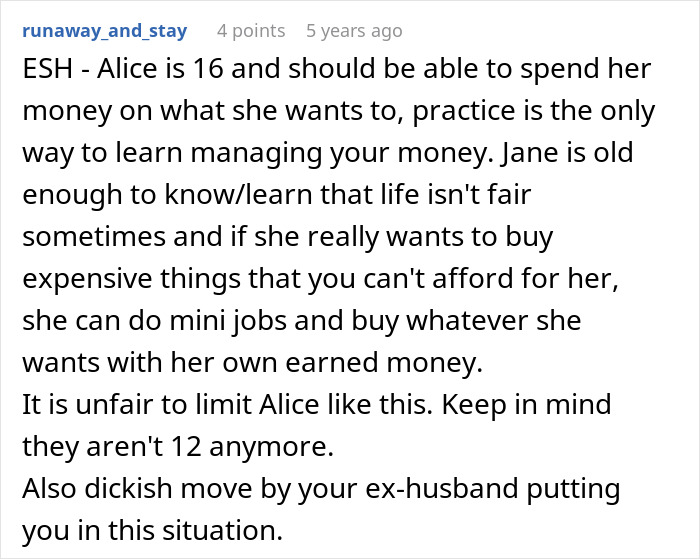It’s pretty important to manage favoritism in any family, but even more so when it’s a mixed family. So when it comes to rules, gifts, privileges and especially allowances, parents really do need to think through the consequences.
A woman turned to the internet for advice when she realized her daughter’s spending might be causing some family drama. She had increased her allowance by a significant amount as a reward for good grades, but this was causing some jealousy with her stepsister. The internet was divided on the decision to try and limit the daughter’s use of her own money.
Children tend to be more sensitive to inequality

Image credits: unsplash (not the actual photo)
So one mom tried to control how her daughter could spend her own money
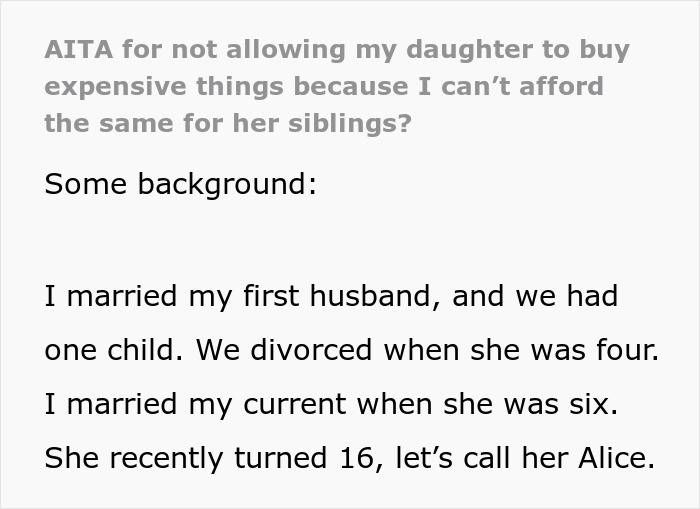

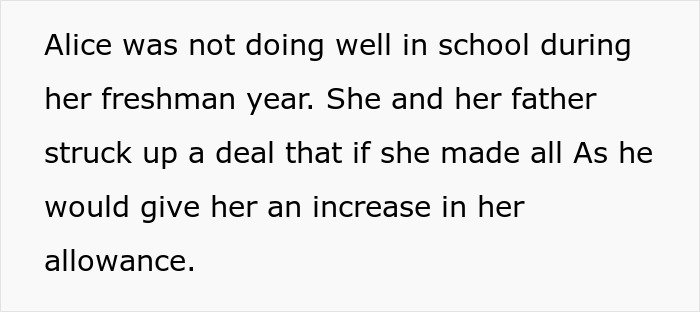
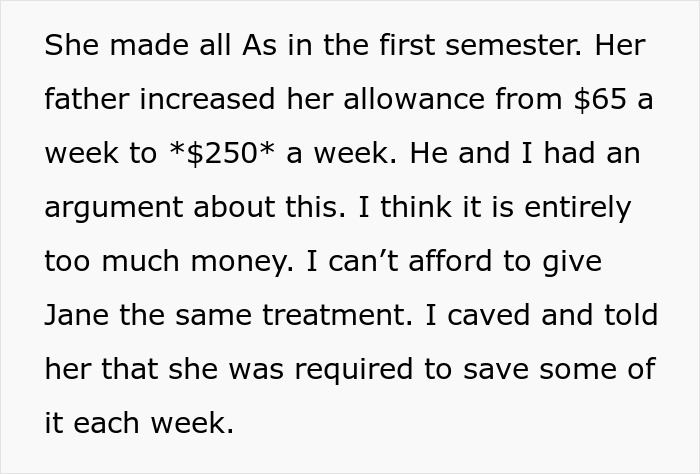

Image credits: freepik (not the actual photo)




Image credits: [deleted]
Managing money can be full of pitfalls before one even has bills to pay

Image credits: unsplash (not the actual photo)
Money seems like a simple, practical child-rearing problem, yet allowances can carry more emotional weight than most parents expect. Handled unfairly, they can fuel jealousy, resentment, or perceptions of unfairness between brothers and sisters that can extend far beyond childhood. Parents might want to reward effort, responsibility, or maturity, but children rarely see financial differences through such discriminating eyes. To them, it can feel like favoritism or irregularity, and that can damage sibling relationships.
Considerate allowance management begins with consistency. If one child receives weekly funds, and another receives sporadic money on request, it can be baffling and breed resentment. A structured routine applied to all children in age-sensitive ways helps keep expectations clear. For example, younger children might get a small weekly allowance, and older children a little more with the understanding that they’re now expected to be paying more of their own way. A common trend is for older children and teens to only get the money if they fulfill certain conditions, like chores, grades or housework. The key is openness, in children’s minds, when they understand the reason for the inequality, they will be less likely to feel cheated.
Communication is important here too. Simply handing over money without a word leaves room for assumptions and comparisons. Instead, parents can present allowances as a means to an end: learning to budget, save, and spend responsibly. That turns the allowance into a lesson, not a benefit. Parents can explain that as children get older, their needs and responsibilities grow, which necessarily changes how much money they’re given.
Even when allowances have to be earned, there is still room for conflict

Image credits: pexels (not the actual photo)
Parents should also beware of performance-based allowances that foster unhealthy competition. While money and chores go hand in hand, it is necessary to make the work and reward equally matched. If one child gets the impression that they’re working more for the same or less reward, resentment will occur. Having each child do their own share of household chores with age-based allowances rather than competition would be a fairer strategy. To be clear, $250 dollars is no laughing matter, a 2019 study found that the average weekly allowance kids received in the US was $30. Unlike inflation, it’s only risen 7 dollars since then.
Another level to watch out for is the temptation to use money as a way of salving guilt, whether for time apart, disagreements, or other problems. However understandable, this stands the risk of backfiring by creating an unequal playing field in which one child gets “bought off” and another gets neglected. Emotional needs cannot be met by money, and children will see through attempts at this more clearly than parents expect.
Lastly, allowances should be about balance: providing enough to teach fiscal wisdom without breeding entitlement, splitting fairly without ignoring unique circumstances, and communicating freely so that no child is left in the dark. By approaching the situation with sensitivity and firmness, parents can prevent jealousy from taking root and instead teach valuable lessons in both money and fairness. Done right, allowances are no longer a source of conflict but rather an opportunity to prepare children for adulthood’s genuine financial obligations, while showing them that fairness and communication are worth as much as dollars and cents.
Most thought she was being shortsighted


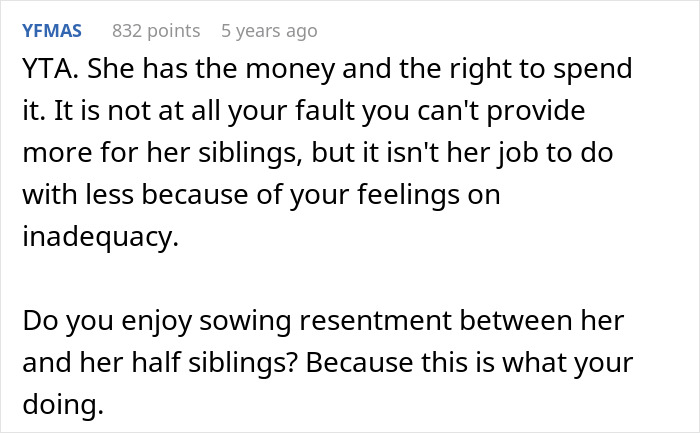



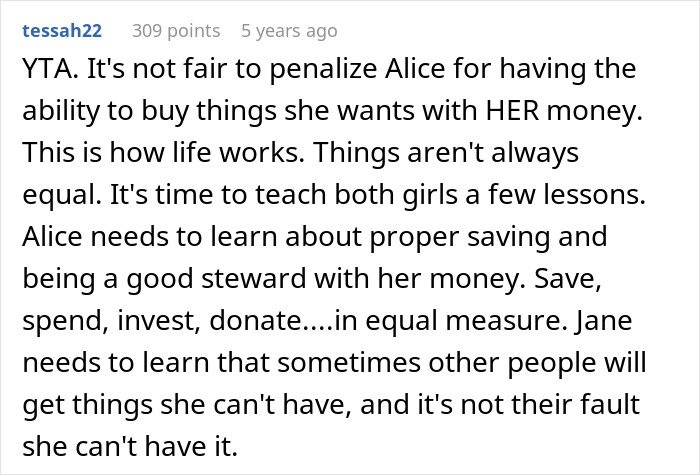

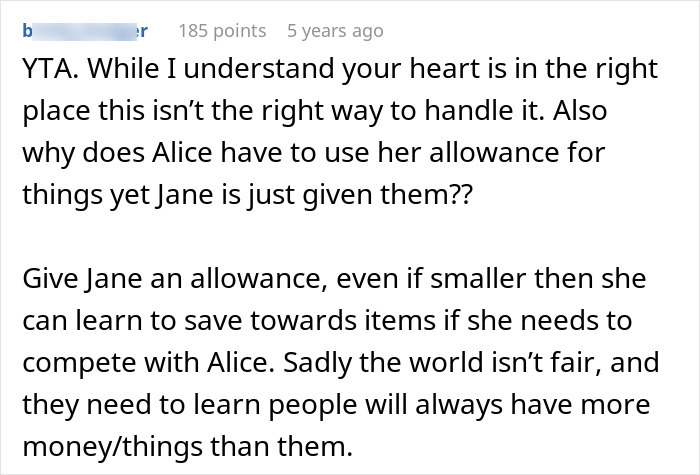






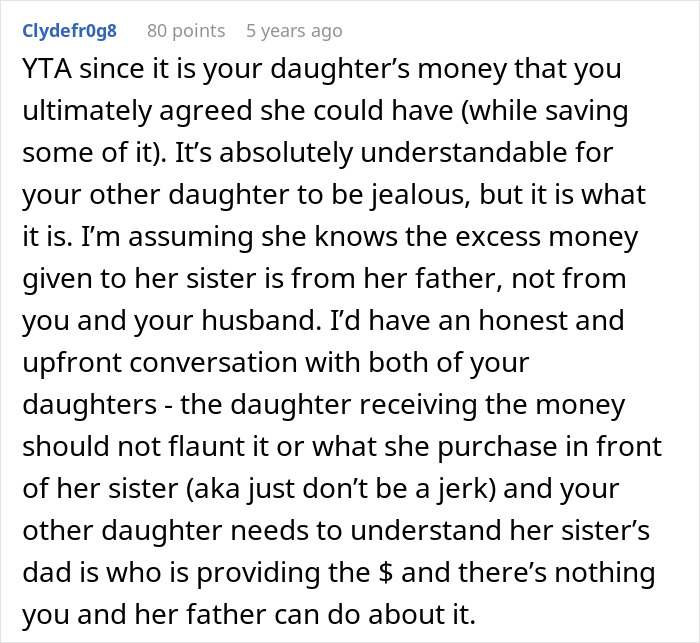




A few saw her point of view



Some thought everyone was being selfish
